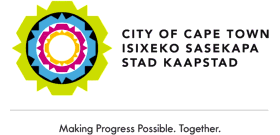 Cape Town’s Event and Cruise Boom Sparks Urban Access Debate Amid Record Tourism Surge
Cape Town’s Event and Cruise Boom Sparks Urban Access Debate Amid Record Tourism Surge
As Cape Town rides the crest of its busiest tourism wave yet—driven by a record-breaking cruise season and a packed calendar of major events—tensions are mounting between city officials and residents over the growing impact on traffic, accessibility, and daily life. The issue has come into sharp focus as arterial roads like Kgosana Drive and Victoria Road experience frequent gridlock, especially when large-scale events converge with cruise ship arrivals at the city’s bustling port.
In a recent letter to the editor published in local media, resident Peter Smulik voiced the frustration of many Capetonians, describing an “almost weekly disruption” caused by everything from marathons and music festivals to fleets of tour coaches departing the cruise terminal. Smulik’s account of traffic snarls—particularly during days when luxury liners like the Queen Anne berth in Cape Town—captures a mounting sense of fatigue among locals, who find it increasingly challenging to navigate the city’s streets as coaches ferry thousands of cruise guests between the Cruise Terminal, V& A Waterfront, and Table Mountain.
Smulik’s perspective is that while the city profits from event permits and visitor spending, it is residents and commuters who endure the brunt of delays, congestion, and increased fuel costs. He argues for a return to a more curated events calendar, suggesting Cape Town restrict itself to traditional mainstays like the Two Oceans Marathon and Cape Town Cycle Tour, and calls for the number of “huge events” to be kept to a minimum to protect residents’ quality of life.
City officials, however, are quick to defend Cape Town’s event-driven model. JP Smith, Mayco Member for Safety and Security, points out that more than 40,000 residents depend on event-related employment, and just seven major sporting events contribute over R5 billion to the local economy. According to Smith, “Calls to restrict the number of events to one per month would have far-reaching economic and social consequences. Events are woven into the social and economic fabric of Cape Town.” He acknowledges that temporary road closures are inconvenient but insists that detailed traffic management plans are always in place and that “the benefits far outweigh the short-term impacts.”
The city’s port area is now a focal point for these pressures. With the 2025/26 cruise season in full swing, Kloof Nek and Tafelberg Roads are regularly filled with coach convoys shuttling cruise passengers to key attractions. Local tourism operators acknowledge that congestion is a recurring challenge, but also view it as an inevitable byproduct of Cape Town’s success as Africa’s premier event and cruise hub. “Cruise guests often disembark early to tour the city, but traffic can delay itineraries,” notes one operator. “Still, most understand it’s part of the Cape Town experience—a vibrant, active city rather than a quiet port.”
This ongoing debate is emblematic of a broader, global challenge: how to balance the economic vitality that tourism and major events bring with the need to maintain livability and accessibility for residents. In cities like Barcelona, Venice, and Amsterdam, local communities have responded to overtourism by staging protests and adopting new regulations to limit cruise ship arrivals, cap daily visitor numbers, and tighten event permitting. Cape Town is now facing similar tensions as it seeks to learn from these international examples while safeguarding the jobs, investment, and energy that tourism injects into its post-pandemic recovery.
The concerns voiced by Capetonians highlight the very real pressures that come with sustained tourism growth. While the influx of visitors generates employment, drives infrastructure investment, and supports a host of businesses—from hotels to transport operators—there are inevitable trade-offs. Increased congestion, rising costs, and strain on urban systems can erode residents’ quality of life, potentially fueling resentment and undermining the city’s celebrated hospitality.
For Africa’s travel sector, the situation in Cape Town offers valuable lessons. As more cities across the continent seek to establish themselves as year-round destinations for events, cruises, and international festivals, the challenge will be to develop strategies that ensure sustainable growth. This could involve smarter event scheduling, investment in transport infrastructure, improved communication with residents, and the adoption of technology to manage flows and minimize disruptions.
There is also an opportunity for African operators to innovate: partnering with city authorities to design tours that avoid peak congestion periods, offering alternative routes or attractions, and leveraging real-time mobility data to enhance guest experiences. By proactively addressing urban access issues, the travel industry can help cities like Cape Town remain welcoming and accessible—while still reaping the rewards of a booming visitor economy.
Ultimately, Cape Town’s current debate reflects the complexities of modern urban tourism. The city’s challenge is to strike a dynamic balance—celebrating its role as Africa’s events and cruise capital while ensuring that the benefits of tourism are shared, and that everyday life remains enjoyable for all who call the Mother City home.
